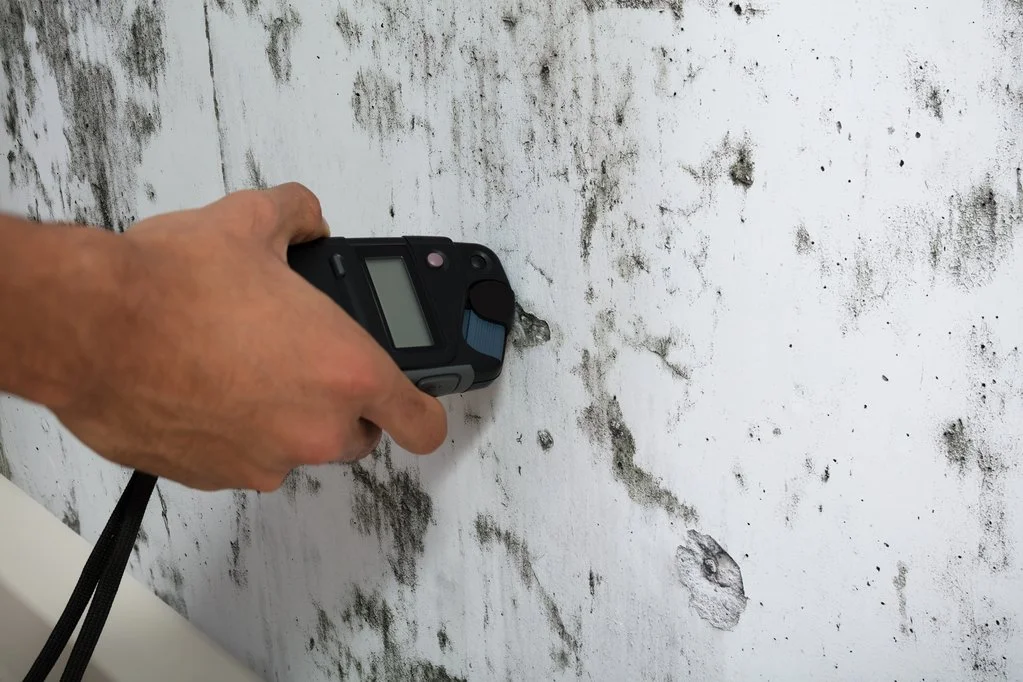Mold Assessment - How to Tell If There Is Mold in Your Home
A complex mixture of mold spores normally exists in most occupied indoor environments. Tests commonly used in home inspections can find these spores, but they don’t always distinguish between "normal" and problematic conditions.
Landlords are responsible for maintaining fit and sanitary housing, including fixing leaky windows and roofs that lead to mold. But proving the landlord’s negligence isn’t always easy.
Reasons to Commission a Mold Assessment
If a tenant claims there is mold in their unit, a licensed home inspector should check the space to determine the extent of the problem. A mold inspection will involve a visual examination of the property, including any hard-to-reach areas (like under sinks or inside wall cavities), and may also include moisture testing. Most standard mold inspections cost between $200-$500, which normally includes the inspection and pre-determined sampling.
Molds are fungi that thrive on organic materials and moisture. They release spores into the air that are carried by currents and can land on a moist surface, growing and spreading. The health effects of mold are poorly understood, and individual susceptibility varies greatly.
Landlords are responsible for maintaining the property in a condition that does not allow for mold growth and for repairing leaky roofs, windows and walls. A mold assessment will help landlords identify the sources of moisture and provide a recommendation for remediation.
If there is visible mold in the building or a musty odor, a mold assessment should be conducted. However, it is important to understand that the results of a mold test only give a snapshot estimate at one point in time and at a single location. Test results can vary over time and are not accurate enough to indicate the presence of a specific type of mold.
If you plan to have a mold assessment, it is a good idea to shut off the HVAC system and to keep all doors and windows closed for two hours prior to the inspection. Closing the doors and windows maximizes the accumulation of mold spores in the interior of the house, making them easier to detect for your inspector. You should also avoid any vacuuming, heavy cleaning or spray disinfectants on the day of your appointment. These chemicals can interfere with the ability of your inspector to see hidden spores in the interior walls, ceilings and flooring.
The Tenant Claims There Is Mold
When a tenant is worried about mold, they should first consult with a certified mold inspector. This person can help them document the presence of mold in their unit and determine whether there is a serious problem that needs to be addressed. In addition, a mold inspection may uncover sources of moisture that are not as obvious as water damage or a leak. This is an important step since the moisture conditions that can lead to mold growth can be hidden behind walls and inside building materials.
The inspection process can include a visual inspection of the property to look for evidence of mold as well as sampling. The sampling is usually done using a swab that contains a liquid preservative that can be used to collect a small sample of surface mold for testing. In some cases, a drywall sample or even a portion of the structure itself may need to be removed for a more thorough and conclusive analysis. There are many over-the-counter tests available for mold, but they are not as accurate or complete as a professional inspection and laboratory analysis.
Once mold has a foothold, it can be very difficult to get rid of it entirely. That is why it is important for tenants to report problems early, especially if the issue appears to be getting worse. This will give the landlord a better chance of fixing the problem before it gets out of hand and potentially affects health.
It is also a good idea for tenants to take steps to prevent mold from occurring in the first place. For example, they should make sure that their appliances are properly vented and that the house is not overly humid. Tenants should also keep their apartment clean and free of clutter that could hide spores. It is also helpful to have the building maintenance routinely inspect apartments, as it is easy to overlook things like a leak around the sink or an air vent that can feed mold spores.
Contact Us To Schedule A Mold Assessment!
Do you own rental properties? Are you concerned about mold? We can help! We are a team of experienced mold assessors who are dedicated to providing landlords with the information they need to protect their properties and tenants from mold.
We offer a comprehensive mold assessment service that includes:
A visual inspection of the property
Testing for mold spores
Identification of the type of mold
Recommendations for remediation
We are also available to provide ongoing mold monitoring services to help you prevent mold problems from occurring in the future.
To learn more about our mold assessment services, please contact us today. We would be happy to answer any questions you have and schedule an appointment.

